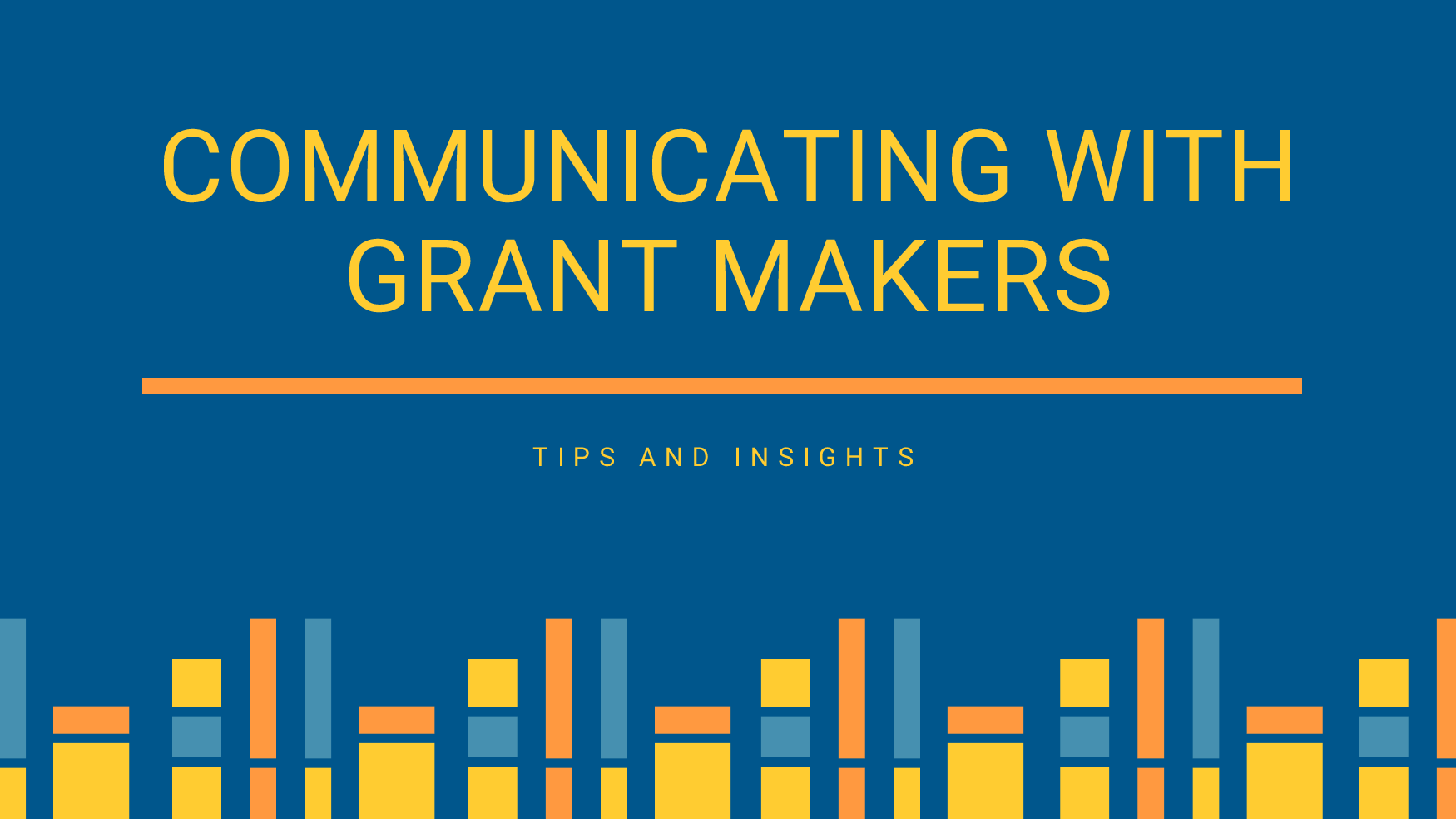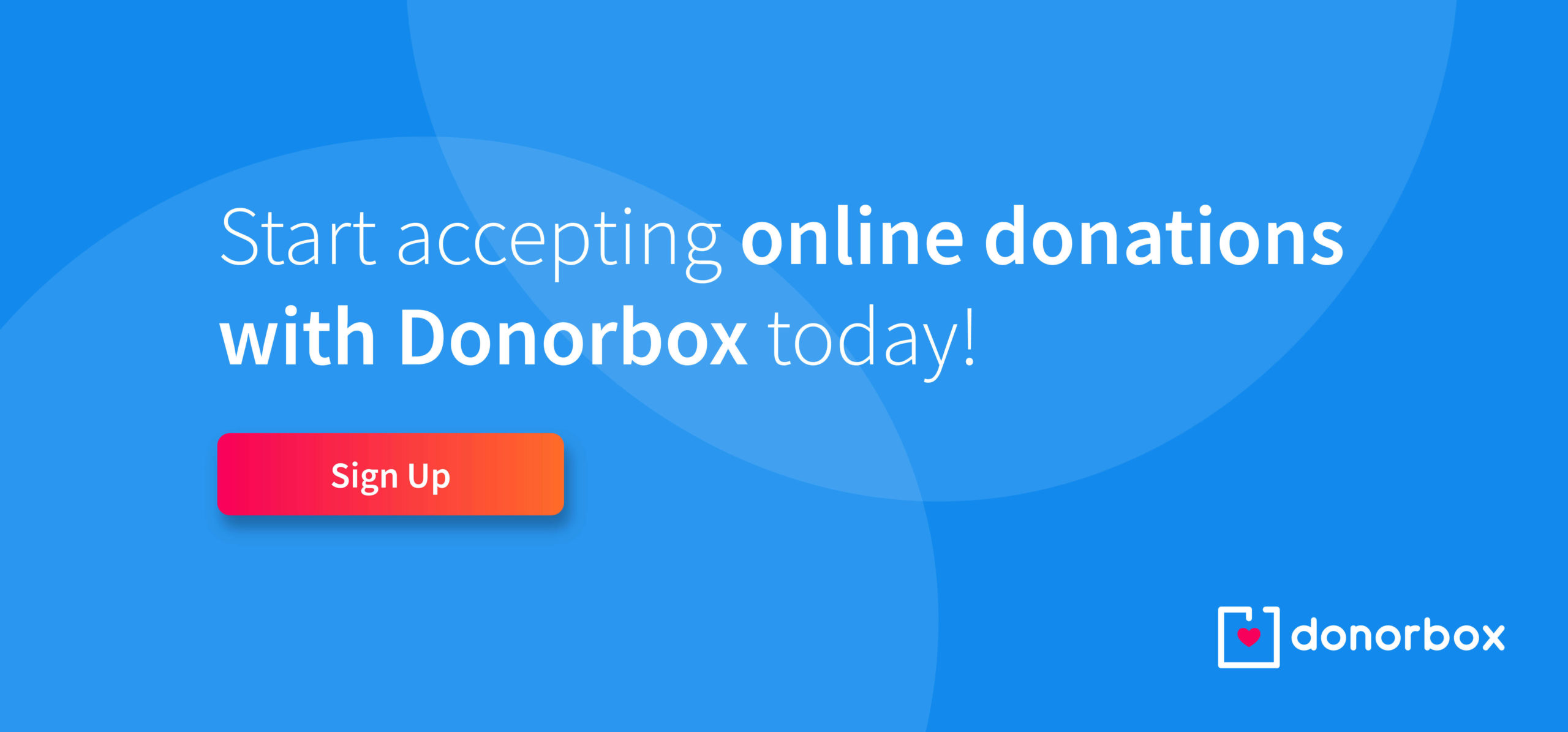Communicating with Grant Makers | Tips and Insights
Thinking of approaching a grant maker? In this article, we share some tips on how best to conduct research on grant makers, and the best ways to communicate.

Thinking of approaching a grant maker? In this article, we share some tips on how best to conduct research on grant makers, and the best ways to communicate.

It’s a week before your nonprofit’s grant application is due and you aren’t sure what information one question is really asking for. Do you feel comfortable reaching out to your grantmaker for clarification?
With the right tools to present the best version of yourself and your nonprofit’s mission, you can create a valuable relationship with your grantmaker. And asking questions will feel easy and comfortable!
Feeling confident asking questions about application materials, deadlines, and the scope of grants will not only make your nonprofit’s application more competitive but will show your grantmaker that you want to be sure that this relationship is the right fit.
In this post, we’ll look at the best ways to complete research about grantmakers, how to begin communicating with a new grantmaker, what kinds of questions to ask, how to start difficult conversations, and how to maintain a new or existing relationship with a grantmaker.

A grantmaker is an organization that makes grants. The most common grantmakers include:
There are many ways to find grantmakers that might work for your nonprofit. Once you have a good list of potential funders, it’s time to do the research to make sure they’re truly a good fit.

Think of this like you’re preparing for a job interview. You wouldn’t go into the interview without researching the company, would you? This may seem obvious, but knowing important information about a grantmaker before contacting them shows that you value their time and are interested in them. It also allows you to feel confident that the mission of your nonprofit aligns with its goals.
Beyond this, understanding the scope of their giving also helps you establish a good fit. Do they primarily fund large, years-long projects and your nonprofit is looking for funding for a one-time event? Do they only fund capital projects and you wish to work on something on a national scale?
Establishing this before connecting with a grantmaker saves you both time, effort, and the embarrassment of reaching out somewhere that is a bad fit.
In some cases, your nonprofit’s reputation could be at stake if you choose to work with a funder who doesn’t align with your mission. This is why doing your research is such a vital step of communicating — before communicating even occurs.
You can use a variety of resources to conduct this research, such as:
Once you know you have the right grantmaker for your nonprofit, it’s time to reach out.

Approaching this communication can feel tricky, but with a few tips, you can easily begin building a lasting relationship.
If you need tips on how to write a grant proposal, check out our guide for writing effective grant proposals.
You might be wondering what kinds of questions are appropriate to ask during meetings with grantmakers. It can be tricky to find the right way to get the information you need, but it’s always a good strategy to have polite, well-thought-out questions ready.
1. Beyond those that simply align with your funding goals, what kinds of projects are you most interested in funding?
You can follow up by asking about your nonprofit’s specific project type like a capital project, a service project, an exhibit, etc.
2. What are the most common reasons why you or your organization deny grants?
3. I know you’ve funded projects like ours in the past, but do you believe our project is a good fit for your grant?
If you did your research, you should have a pretty good idea of what the answer to this question will be. But sometimes grantmakers have a different idea of what they’d like to fund in the future—you never know, and it doesn’t hurt to be certain.
Plus, this gives you a chance to show off your research and let your contact know you’re familiar with their history!
4. Are there any application errors your review team notices again and again?
As a follow up to #3:
5. What steps can I take to be sure my nonprofit avoid those errors on our application?
This could be an easy fix like having the correct financial reporting for a certain year, or it could be something more complicated about the scope of a project description. Whatever the case, you’re speaking with someone who knows all about what they’re looking for. Take advantage of their knowledge while coming off as concerned, thorough, and interested.
If you have more questions during the course of your conversation with your grantmaker, just ask! Remember that as long as you’re demonstrating that you are a polite person to work with and someone who has done the appropriate background research, you should feel comfortable and confident asking questions.
But what about more difficult conversations? With the right mindset, you should feel just as confident tackling those tricky conversations too.
It might seem frightening to be open with a grantmaker about your needs, concerns, and hopes. Although it can feel awkward at first, navigating these difficult conversations can be the key to building an important relationship.
Here are some examples of uncomfortable conversations that can be tricky to manage. With the right approach, you can easily discuss these with your grantmaker.
Don’t assume right away that your project simply wasn’t a good fit. They might have had another applicant with a slightly more timely project, or maybe they might have had less funding available than they originally budgeted for. There are many reasons why your nonprofit’s grant might have been denied, and asking for more information will only benefit future applications.
Keep in mind that these conversations can always be tricky no matter how delicately you approach them. A good tip is to enter a conversation like this with the goal that both parties should leave satisfied.
In other words, you need your issue resolved—and you should get it resolved—but you should also try to understand the needs and concerns of the grantmaker. After all, they’re trying to do just as much good in the world as you and your nonprofit.
Pro tip: Timing is critical for these conversations to go smoothly. Remember that addressing any problems or concerns as they arise will always work out better in the long run. And it will save you and your team a ton of unneeded stress.

Along with adding a grantmaker to your email list, remember to consider other ways of communicating with them to maintain a good relationship.
If you do receive a grant, be sure to follow any reporting guidelines required by the grantmaker. Beyond any formal reports, you can always go above and beyond to show the grantmaker how their funds helped make a difference — in your organization, and for whoever your organization serves.
Get creative with this! Here are some exciting ways to let a grantmaker know you really appreciate them:
It’s the little things that make maintaining relationships fun for both you and your grantmaker.

In the end, remember that the key to any good relationship is polite, open communication. You want your grantmaker to feel confident that your nonprofit is not only deserving of their grant, but a trustworthy member of the nonprofit community.
Keeping relationships like these strong can lead to new opportunities and collaborations down the line. Even if a grantmaker is unable to fund your nonprofit at the moment, they might have expanded funding opportunities later or they might hear about a grant that your nonprofit is perfect for.
Always remember to be confident but humble when communicating. You know your nonprofit is worth it — now it’s time to show your grantmaker!
You’re on your way to effectively communicate with grantmakers! Using these tips as you approach new or existing grantmakers will ensure you have an easy and productive conversation.
Doing your research allows you to feel like you know a little bit about the grantmaker, and about how your nonprofit aligns with their goals before you even reach out.
Beyond this initial research, you have to go about connecting the right way, with the right contact, and in the right circumstances. This will allow you to feel comfortable that you’ve done your part to make a good connection.
This is when real communication occurs. Asking important questions opens up a dialogue between you and the grantmaker, which allows you to broach difficult conversations when (and if!) they come up. This helps develop a relationship.
And of course, like all relationships, you have to work to maintain it. Keeping a grantmaker in the loop, regardless of if they’ve funded you yet or not, shows that you care about this being a good fit. You want them to appreciate your work the same way you appreciate theirs!
Check out the rest of our nonprofit blog for more grant maker tips and tricks.

Subscribe to our e-newsletter to receive the latest blogs, news, and more in your inbox.

